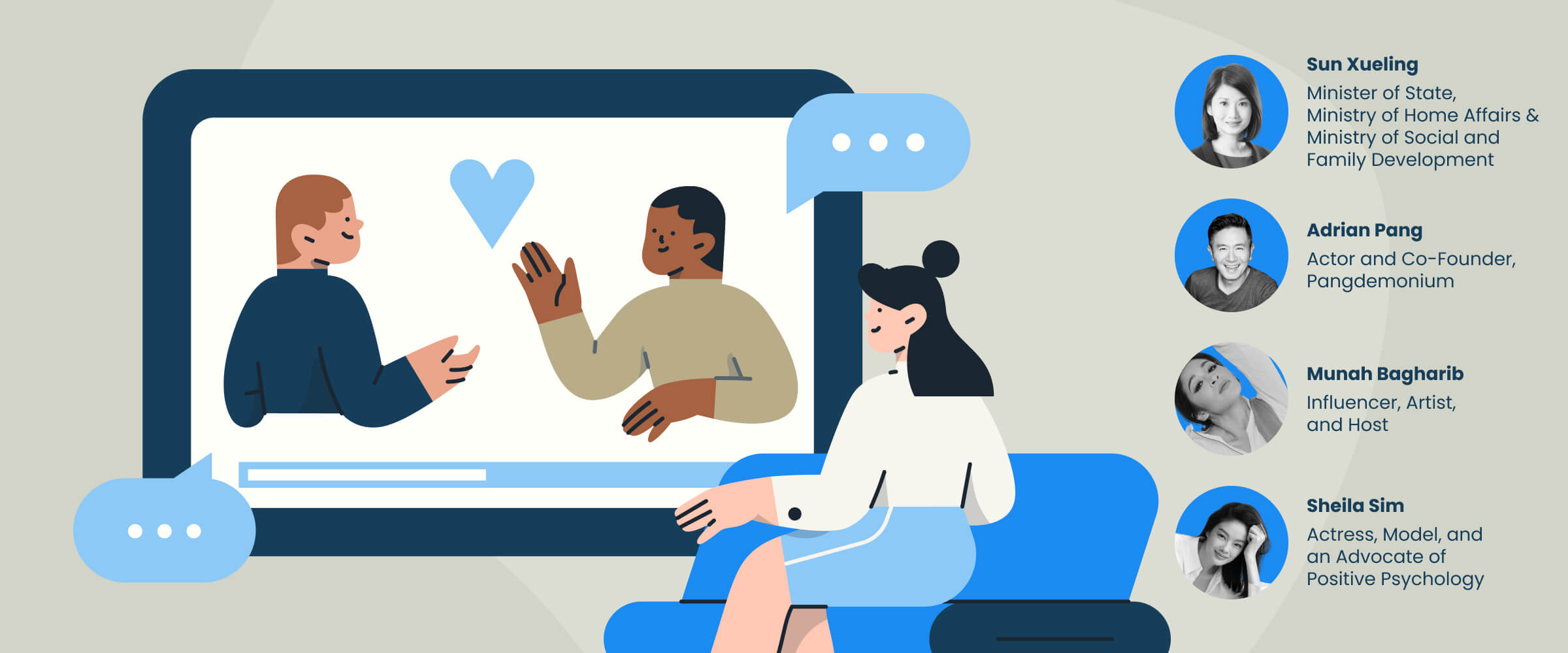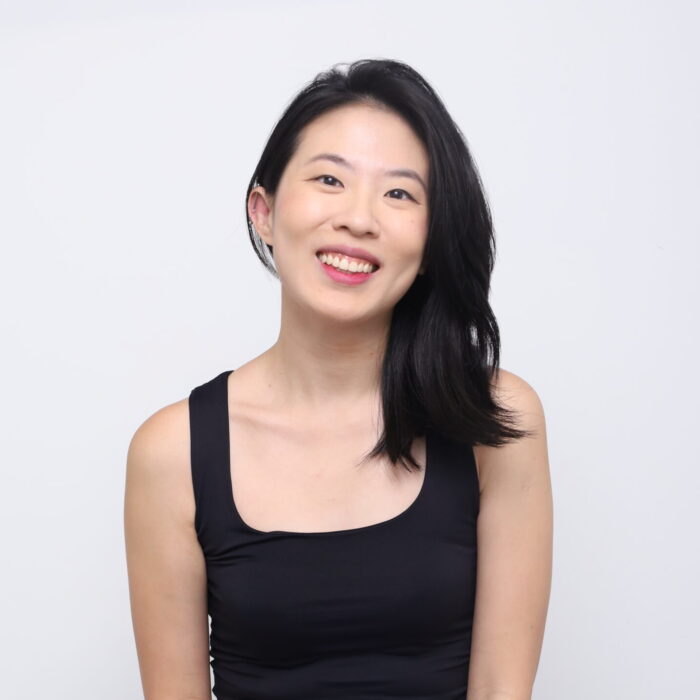At Mental Health Festival Asia 2022, over 30 resounding voices came together to discuss the future of wellbeing in our workplaces and communities. Over two days, Intellect’s tentpole event tackled three main themes: The state of mental healthcare, best practices in the workplace, and ways to support others.
If you missed it, here are 11 sessions to catch up on.
On tiering mental healthcare
“Mental health is not just black or white. Sometimes, we are in the middle, in the grey,” shared Minister of State Sun Xueling in her opening keynote. Since mental health issues lie on a spectrum, varying levels of support are key. Just as youths typically see school counsellors before being referred to family service centres or psychiatrists, employees can benefit from having agency over their healing. “When people are disempowered, that is when they feel the most disappointed, hopeless, and are the most stressed.”
On educating the masses
Change goes hand in hand with education, and Adrian Pang’s work in the last decade exemplifies just that. Whether in his theatre productions or the recent National Day Parade 2022, the Singaporean actor and co-founder of Pangdemonium never shies away from difficult conversations. He added that in a society that already downplays mental health, generalising terms like depression “does a huge de-service to people who are really struggling day by day to find a reason to stay alive”.
On the future of mental health insurance
Normalisation can only go so far without concrete pillars of support. But while a staggering 84% of consumers across Asia are open to private mental health insurance, only 1% of insurers in the region see it as a key priority. The reasons? Social stigma, data privacy, and the pitfalls of offering traditional payouts in mental health insurance. Ben Toh, Group Head of Bancassurance at United Overseas Bank Limited, and Lauren Liang, Swiss Re’s Global Head of L&H Partnerships & Propositions Innovation, weigh in on the future of coverage.
On leading teams with vulnerability
Did you know that more than 80% of employees across Southeast Asia are at risk of burnout? For Joan Alicia Koh, the Head of HR at NielsenIQ, answering their cry for help starts with leading by example. But leaders are human too, and “vulnerability is a courage to be valued, not a weakness to be hidden”. She shares her personal framework for walking the talk, and the dos and don’ts of having conversations about mental health with employees.
On a top-down approach to company culture
RICO stands for Recognising Individuals Consistently and Openly, and that’s McDonald’s Singapore’s secret to their company culture. According to Managing Director Benjamin Boh, celebrating wins motivates employees to deliver, commend, and share knowledge with one another. He is joined by Carousell co-founder and CEO Quek Siu Rui, who shares the woes of new managers and how he sets them up for success.
On influencing stakeholders at work
Championing mental wellbeing at work is a tall order, no thanks to disparities in perceptions across the organisation, said Aon Wellbeing Consultant Erica Stein. It certainly doesn’t help that HR teams today are more reactive than proactive, according to Julien Mathieu, co-founder of health insurance platform Alea. What needs to shift in the workplace? Intellect’s Global Head of Sales Alan Liu asked our experts the hard questions.
A robust wellbeing strategy is half the battle, but employee buy-in is the other. In a separate panel, Omnicom’s Chief Communications Officer Justin Low shared how the media group nudges a diverse workforce across the Asia Pacific towards utilisation.
On holding space for our loved ones
In collaboration with Tinder, we gathered TeamSG athlete Constance Lien, content creator Andee Chua, and Influencer Munah Bagharib to share what authentic connection means to them. “Sometimes, all the other person needs is to be heard. You don’t always have to give advice or tell them, “this is the solution to the problem”. Holding space for others is key to fruitful connections,” said Munah.
For Actress Sheila Sim, this starts at home and at a young age. Rounding up Mental Health Festival Asia 2022 with her insights on conscious parenting, the new mother shared how she helps her daughter process difficult emotions while modelling positive behaviours in their relationship.
On supporting caregivers
In the same way that airline safety briefings instruct us to don our oxygen masks before helping others, it’s an uphill task to pour from an empty cup. But why’s it so hard to put ourselves first? Shailaja Sharma, Group Head of Leadership and Learning at IHH Healthcare, encourages caregivers to dig deeper by asking themselves:
- Do you think you’re being selfish if you put your needs first?
- Do you feel you have to prove that you are worthy?
- Do you have trouble asking for what you need?
- Do you feel inadequate if you ask for help? Why?
On bridging generational differences
Millennials started working as the economy bounced back from a financial crisis, but Gen-Zers entered the workforce amid a global pandemic. The former remembers simpler times before smartphones, while the latter was born into a digital age of instant gratification. How do these lived experiences shape their outlooks on mental health? Generational differences in perceptions can impede connection but, as it turned out, the two are more alike than different.








